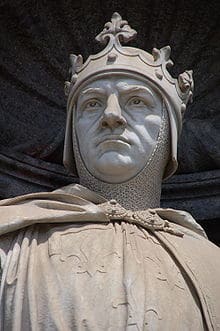This is the 7th episode in the on-going saga of Rabban Sauma.
Last episode ended with the Mongol Ilkhan Arghun in Persia surrounded by enemies. He had a powerful ally in the Great Khan Khubilai, but Persia and China were too far apart and Khubilai was already locked into his own troubles in his contest with his cousin Khaidu.
Arghun had risen to the Ilkhanate in Persia by supplanting his nemesis Ahmad, a pro-Muslim ruler who’d been removed & executed after a short reign. Arghun worried Ahmad’s allies, the Muslim Mamluks to the West would embark on a campaign to conquer Persia. But as he looked for allies, the offerings were slim. Khubilai was not help. Only one option remained; Christian Europe. The same realms the Mongol Machine had just a few decades before almost overwhelmed. Would Christian Europe set aside that recent horror to ally with the Ilkhanate in a new Crusade to purge the Middle East of the Muslim threat? Well, that’s the plan Arghun settled on. For Europeans, the Mongols were deemed as great a threat as the Mamluks. Maybe more so. So, in a nod to the old saw, “the enemy of my enemy is my friend,” Arghun hoped maybe an alliance could be forged between Persia and the crusading states of Europe.
But, who to send with the proposal? This is where we open chapter 2 on Rabban Sauma’s amazing epic.
We open that chapter with some background on the political situation in Persia & Europe.
Arghun wasn’t the first Ilkhan to propose a treaty with Christian Europe against the Mamluks. In 1265, Abakha sent an embassy to the Pope requesting an alliance. Since the Mamluks were pressing hard to wipe out the last of the Outremer; the Crusaders states in the Middle East, Abakha assumed they’d gladly want assistance in the fight. But Europe was weary of crusading. Much ado had been made over the previous 200 yrs with little lasting result. Indeed, the success of the First Crusade was followed on by tragedy after tragedy. In addition to that weariness, the European kingdoms weren’t exactly getting along. Just in Italy, the Pope was faced with hostility between the many city-states, with the conflict between Venice and Genoa dominating the Mediterranean.
A further intrigue inserted at this time was the relationship between Charles of Anjou and the Pope. Brother of the French King St. Louis IX, Charles was quite ambitious. He secured the Pope’s blessing to become the King of Naples and Sicily. His goal was to dominate the Byzantine Empire so as to control trade in the Eastern Med. He saw the Mongols in Persia as a threat to that ambition because the Ilkhan Abakha had married a Byzantine princess. Charles let the Pope know he wasn’t to entertain any overtures from the Mongols for an alliance. Both Kings Edward of England & Louis of France wanted to stage a Crusade. But the turmoil in Europe stalled their plans.
They managed to pull a Crusade together in 1270, but Charles once again deftly managed to take charge of the venture. He changed the goal of the Crusade from the Holy Land to Tunis in North Africa, a land he wanted to conquer in his bid for naval hegemony. When the Tunisians sued for peace and promised to pay tribute, Charles declared the campaign a success. Edward was stunned and sailed his forces to Acre on the coast of Palestine. He then sent an embassy to the Ilkhan Abakha, asking for an alliance against the Mamluks in Syria. But wouldn’t you know it? It just so happened that the Chagatai Mongols on Persia’s Eastern border had invaded and Abakha was now engaged there. He had no troops to send to Edward’s aide. Even though Edward was without allies and had a relatively small force, he carried on his campaign for a year that wore both sides out. The Mamluks agreed to a truce that safeguarded the Outremer for 10 yrs.
Edward went home, and things settled down for a while, only to spin up again a few yrs later when a new Pope, Gregory X, came to Peter’s chair. He’d lived for a time in Acre and was eager to see the Crusader States in the Middle East secure against the Muslim threat. He hoped to unite European monarchs in another Crusade and used an Ecumenical Council in an attempt to forge an alliance. It was not to be because he died before it could be organized.
It turns out Europe was a lot like the Mongol domains; fractured & divided among many interests. These attempts on the part of both Europeans and Persian Mongols to secure an alliance against the Mamluks just never gelled.
Then, in the first half of the decade of the 1280’s things began to change. Charles of Anjou, who’d been such a trouble-maker, lost power and died. His removal saw new alignments. One of the most significant was Venice’s giving up- it’s long-held aspiration to invade Constantinople and take over the Byzantine Empire. They’d been Charles’ ally in that scheme. But when he passed from the scene, they instead, made a treaty with the Byzantines. Trade began flowing from Venice to Constantinople once more. An uneasy peace was made among the Italian city-states.
Back in England, Edward was making plans. He was still amped to participate in REAL Crusade. He viewed his earlier foray in Syria as little more than a protracted raid. He wanted to see a major campaign of European nobility sweeping Islam from the Middle East. To that end, he began plans to make an alliance with the Mongol Ilkhans in Persia through marriage. He believed the Ilkhan was a Christian and that a suitable match could be made between their courts that would cement an alliance in preparation for a new crusade. The Grand Master of the Knights Hospitallers sent a message to Edward that the Battle of Homs between the Mongols & Mamluks had severely weakened the Muslims and the time was ripe for a new campaign. But in yet another example of timing, Edward had to divert the funds he’d set aside for the crusade to deal with an uprising in Wales.
Then, in 1285, Honorius IV became Pope, replacing the pro-Charles Martin IV. Honorius owned different political priorities than Martin. He was all for a Crusade and opened talks with Edward to stage one. When Edward asked for special treatment by the Pope, negotiations stalled and plans for the campaign were put on hold.
Back in Persia, the Mongols were encouraged in their hope for an alliance with the West when a group of Franciscans sent by Pope Nicholas III stopped there on their way East. They were the answer to Khubilai Khan’s request for Christian teachers who could instruct his court and people in the Faith. The Ilkhans assumed they were an embassy sent to them. They did stay for a while but then moved on. Then, in 1285 the Ilkhan Arghun sent a letter to Pope Honorius informing him of the careful treatment and favor Christians received in his domains. He then requested a joint campaign against the Mamluks in Syria. Since Honorius was having problems uniting the Europeans in a crusade, he was unable to commit or make any promise of an imminent alliance. But he did make clear Europe’s willingness to enter into one when the time was right.
In 1286, Arghun decided it was time to ramp things up by sending an official embassy to Europe. The Mamluks had forged ties with Turks and Kurds in harassing Nestorian communities in the Ilkhan’s realm. Because they were his subjects, he wanted to protect them. But he also viewed their harassment as a possible inducement for the Christian West to come to their aide. He promised that if a joint action against the Muslims was successful, the Europeans could take control of Jerusalem and their settlements in the Outremer would be safeguarded. The key to acceptance of the offer, Arghun believed, would be proportional to the importance of the embassy he sent. He needed an experienced traveler; someone who could take the long and difficult journey and arrive in Europe ready to go. He needed someone fluent in several languages. A scholar well-versed in the learning of the age. Someone with notable accomplishments that would commend him as worthy of listening to. Oh, and he needed to be a Christian since he’d be meeting with Christian leaders. Because Europeans were so hung up on status and class, the envoy needed to be of high rank; someone whose office required attention.
Rabban Sauma was the perfect fit for these requirements. Since he was unable to pursue his mission as ambassador to the court of the Great Khan in China due to the war with Khaidu, why not send him the opposite direction – West, to the capitals of Europe?
But how would he communicate with Europeans? Sauma knew many languages now. But Italian, German, French, and English were not among them. He had picked up Persian though. And the flourishing trade between Europe and Persia meant there were many merchants who could translate for him.
As for office, Sauma was officially an ambassador. And he was a close personal friend of the Nestorian Patriarch, Mar Yaballaha. Indeed, he’d been instrumental in his selection. While Sauma waited for the paths East to open so he could fulfill his role as ambassador to Khubilai Khan’s court, Yaballaha had made Sauma his chief of staff.
Arghun couldn’t ask Sauma directly if he’d take on the embassy West. He had to go through proper channels and asked Yaballaha for his counsel on who to send. The Patriarch suggested his friend Sauma, then immediately regretted it. This would be the first time for many years they’d been separated. Yaballaha leaned on Sauma’s wisdom in leading the Nestorian Church. He’d be greatly missed. Though Sauma’s record doesn’t say so, he must have needed some persuading as well. But the travel and adventure bug his young protégé Markos, the now Patriarch Mar Yaballaha, had infected him with years before in their isolated cave in the Fang Mountains of China took over. Their main ambition to visit Jerusalem and the birthplace of Christianity was thwarted by the Mamluk presence there. The next best thing would be to visit the headquarters of both the Eastern Orthodox Church in Constantinople and the Roman Catholic Church in Rome. If he could pull it off, Sauma would have the singular privilege of having visited the HQ’s of the 3 main branches of the Church. And not just as a pilgrim, but as an official envoy. Someone granted access to see the most sacred places of the Faith after the Holy Land itself.
So, Sauma agreed. Yes—He’d be Arghun’s embassy to Europe.
Sauma thus becomes the Mongol’s first ambassador to meet a European monarch, He’s the first Chinese to write an account of his travels to the West.
Arghun gave him written communications and gifts to pass along to the Byzantine Emperor, the Pope, and the kings of France and England. He gave him gold for the journey, a caravan of attendants, and the all-important letters-patent, the forerunners of the modern passport, that ensured Sauma’s safe passage.
Sadly, we don’t have Sauma’s own account of his travels. What we have is an early translation of it into Syriac. The monk who did it appears to have edited Sauma’s account so that while it gives detailed descriptions of the holy sites Sauma visited it skims over the diplomatic aspects of his mission. So there’s no account of the contents of the letters Arghun sent West. Sauma’s impressions of Europe are all highly abbreviated. The translator was only interested in the religious aspects of Sauma’s account and only includes an outline for context in those religious moments.
We’ll pick it up here in the next episode, as Sauma embarks on his journey West.

